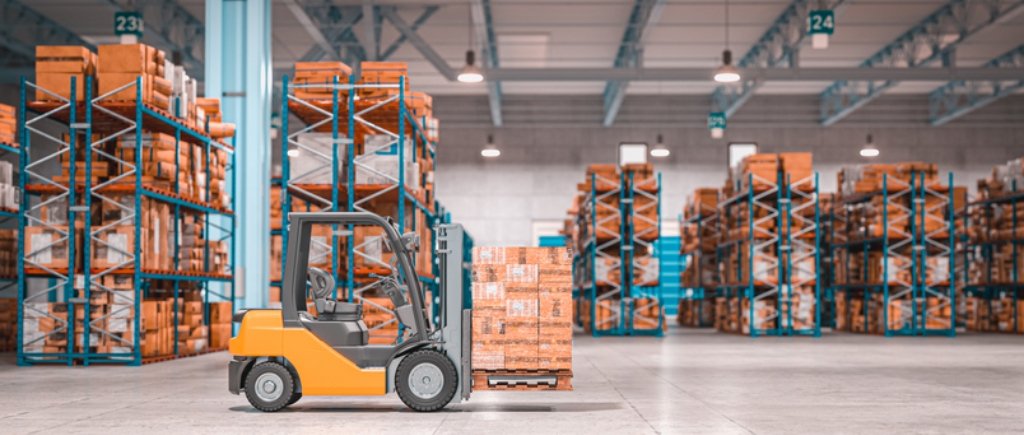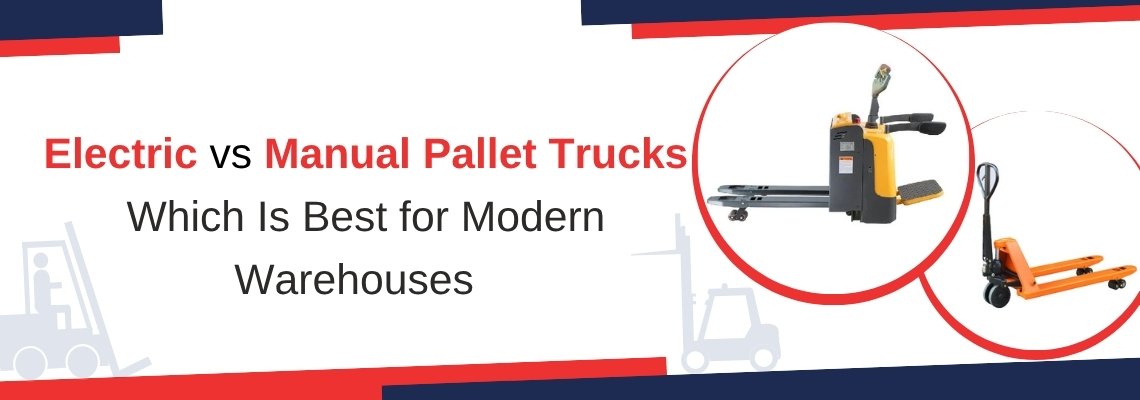When it comes to material handling in modern warehouses, choosing between an electric pallet truck vs manual pallet truck can be a game-changer for productivity and efficiency. Warehouse managers, procurement heads, and logistics companies often face the dilemma of picking the best solution that balances cost, ease of use, and operational demands. This blog will break down the essential differences between electric and manual pallet trucks, helping you decide what fits your warehouse needs best.
Why the Choice Matters
The electric pallet truck vs manual pallet truck debate hinges on more than just price. While manual trucks typically cost less upfront, electric models offer numerous advantages in speed, strain reduction, and precision that modern, busy warehouses demand. Understanding these differences can help you optimize your material handling practices and create a safer, more productive environment.
Key Points to Consider in Electric Pallet Truck vs Manual Pallet Truck
-
Operational Efficiency
- Electric pallet trucks significantly reduce the effort required to move heavy loads compared to manual trucks, allowing operators to handle larger volumes with less fatigue.
- They offer faster travel speeds and powered lifting, which accelerates pallet movement, especially over long distances.
- Manual pallet trucks rely entirely on operator power, making them more suitable for small or low-volume operations.
-
Cost Factors
- Manual pallet trucks have a lower initial cost and require minimal maintenance.
- Electric pallet trucks come with higher upfront costs but compensate with greater productivity and reduced labour costs over time.
- Consider total cost of ownership including maintenance, energy consumption, and operator productivity.
-
Safety and Ergonomics
- Electric pallet trucks reduce physical strain on operators, lowering the risk of workplace injuries.
- They often include advanced safety features like speed control and automatic braking.
- Manual trucks can cause operator fatigue, especially in high-volume settings, increasing the risk of accidents.
-
Suitability for Warehouse Size and Layout

- Electric trucks excel in large warehouses with long aisles or multi-shift operations requiring nonstop material movement.
- Manual trucks are ideal for small warehouses or tight spaces where electric trucks may be harder to maneuver.
-
Maintenance and Downtime
- Manual pallet trucks are mechanical and easy to maintain with fewer parts that can fail.
- Electric trucks require battery charging and have more components that demand regular servicing.
- Proper maintenance of electric trucks ensures longer lifespan and reliability.
-
Environmental Impact
- Electric pallet trucks produce z
- ero emissions, making them environmentally friendly and compliant with modern warehouse sustainability goals.
- Manual trucks have zero emissions too but may not meet efficiency demands in larger operations.
- Operator Training and Skill
- Electric trucks need some training to operate safely and efficiently.
- Manual pallet trucks are straightforward to use and require minimal training.
Which Should Your Warehouse Choose?
The answer depends on your specific warehouse operations. For large-scale, high-volume warehouses aiming for efficiency and operator safety, electric pallet trucks provide substantial advantages. For smaller or budget-conscious operations with lighter workload, manual pallet trucks remain practical and cost-effective. Many warehouses also benefit from a combination of both to optimize flexibility and cost.
Partnering with reliable equipment suppliers like hand pallet truck manufacturers in Coimbatore can help you select and maintain the right pallet trucks tailored to your warehouse size and operational demands




